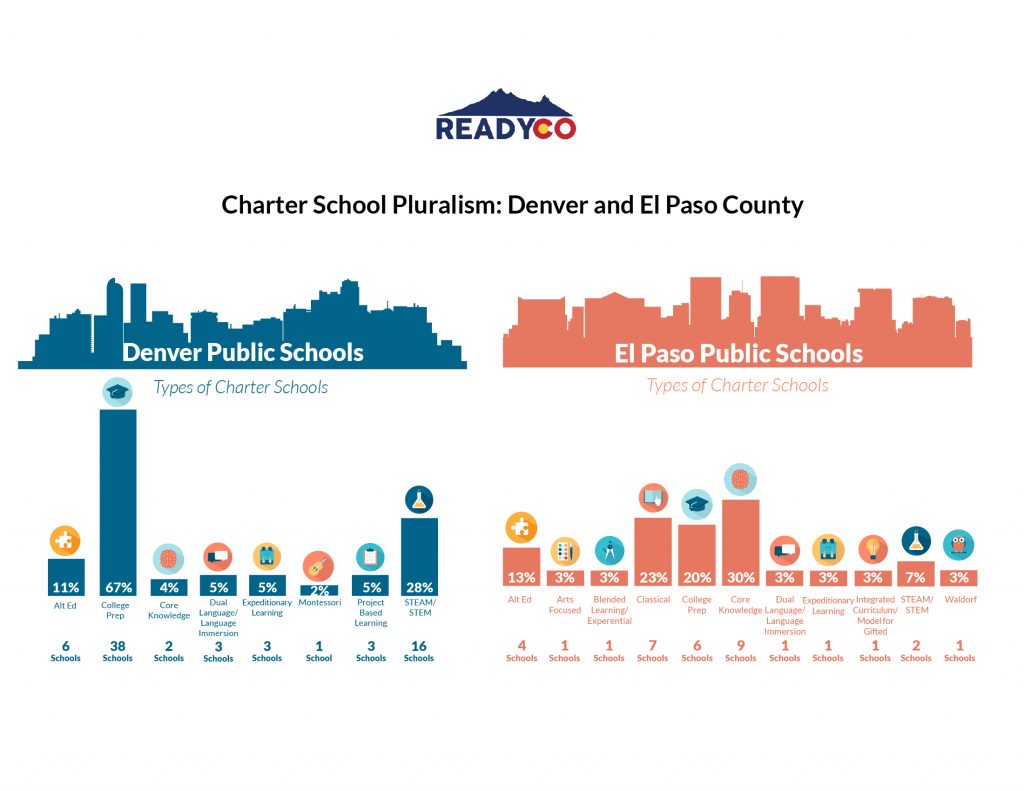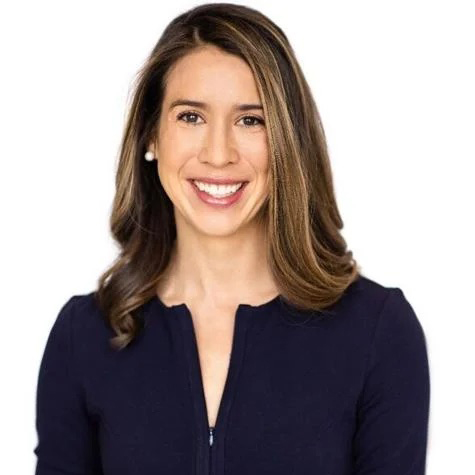
Denver is frequently seen as the flash point for charter school battles between supporters and opponents. As the largest municipality in Colorado, the Mile-High City receives a substantial portion of attention paid to its charter schools. But Denver is not the only major metro area to have invested heavily into charter schools. School districts in El Paso County have demonstrated that an even wider variety of offerings can work well. Denver charter schools are substantially more focused on college prep than other options: 67% of Denver’s charter schools are classified as college prep, while only 20% of El Paso’s charter schools are college prep models. In addition to simply offering a more balanced mix of subjects, El Paso benefits from the fact that their schools are spread out over fifteen districts, of which seven offer charter schools. Recent polling shows that charter schools are more popular in El Paso County than they are in Denver, and partisan differences don’t seem to account for the difference. El Paso’s higher favorability ratings may stem from the much more extensive menu of options their students and families can pick from (including, but not limited to charter schools).
This wide gap in available types of charter schools adds nuance to the commonly held belief that Denver is the state’s only hotbed of school choice. While Denver certainly has conducted good work in improving school choice with charter schools, El Paso public schools far surpass it in terms of number of students served (Denver’s K-12 public school population is 86,918 in one district. El Paso’s is 117,757 in 15 districts), types of specialized education offered, and average performance rating. The graphic below provides a comparative illustration demonstrating that the number of school buildings does not always translate to more choice options or models. Put simply, pluralism in school model is a value that policymakers should prioritize when making decisions if they want to maintain strong public support for school choice.
https://www.cde.state.co.us/schoolview/performance



